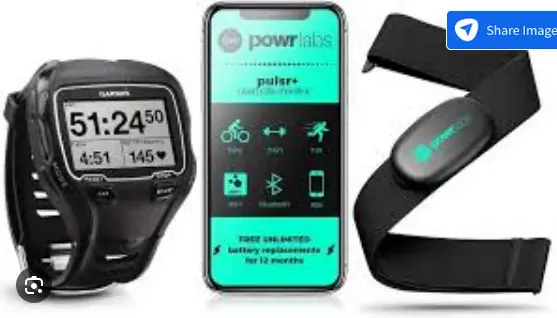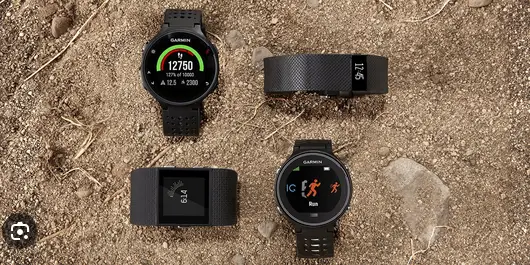Find the Best Peloton Compatible Heart Rate Monitor Now and enhance your workout with accurate tracking and real-time data to boost performance.
Benefits of Accurate Heart Rate Tracking for Optimal Results
Heart rate tracking has become an essential tool for individuals seeking to maximize their fitness efforts. Whether you’re training for a marathon or aiming to improve overall cardiovascular health, understanding your heart rate during exercise provides critical insights into how your body is responding to physical exertion. This practice goes beyond simply measuring how hard your heart is working—it helps optimize your workouts, prevent overtraining, and achieve your fitness goals more efficiently.
Enhanced Performance Monitoring

One of the primary benefits of accurate heart rate tracking is the ability to monitor your performance in real-time. By understanding your heart rate zones, you can tailor your workout to match your fitness goals, ensuring that you are not overexerting yourself or underperforming. Heart rate data allows athletes to track their effort levels during exercises, whether it’s a cycling class, strength training session, or a cardio workout.
With accurate heart rate data, you can ensure you’re spending the right amount of time in the optimal heart rate zone for your fitness goal. For example, if you’re training for endurance, staying in a moderate heart rate zone will help your body adapt to long-duration activities, while intense bursts can help improve speed and power. Consistent tracking helps individuals track incremental improvements, building motivation and confidence along the way.
Optimized fat-burning and Calorie Burn
Using a heart rate monitor during workouts helps to optimize fat burning. When exercising, your body burns a combination of carbohydrates and fat for energy. By staying in a fat-burning heart rate zone (usually around 60-70% of your maximum heart rate), you can maximize the amount of fat your body uses as fuel, helping you achieve your weight loss or body composition goals.
Accurate tracking helps you identify the exact moments when your body switches from using fat to burning carbohydrates, allowing you to adjust your intensity levels for more effective fat loss. Moreover, knowing your heart rate helps you avoid “wasting” energy by overtraining in high-intensity zones that require excessive energy expenditure without corresponding benefits for fat loss.
Avoidance of Overtraining and Injury
Heart rate tracking can also help prevent overtraining, a condition that occurs when the body is pushed beyond its capacity to recover. Overtraining can result in fatigue, injury, and a plateau in performance. By monitoring your heart rate, you can ensure you’re not pushing your body too hard without adequate rest.
If your heart rate exceeds recommended levels for an extended period, it could indicate that your body is under excessive strain. This insight is crucial for understanding when to scale back and allow for rest days, thus preventing burnout and allowing your muscles and cardiovascular system the time they need to recover. In addition, by consistently tracking recovery, athletes can gauge their readiness for further exertion, leading to improved performance over time.
Personalization of Training Programs

Every individual has different fitness levels and needs. Heart rate tracking allows for the personalization of exercise routines based on real-time physiological feedback. What works for one person may not be appropriate for another. Accurate heart rate tracking helps to customize workouts that are specifically suited to an individual’s fitness level and goals.
For beginners, heart rate tracking ensures that they remain within a safe zone to build endurance gradually, while more advanced athletes can use heart rate data to test the limits of their capabilities and improve performance. Whether the goal is to increase strength, endurance, or speed, tracking your heart rate gives you the information needed to make the necessary adjustments to your training plan.
Monitoring Recovery and Adaptation
Recovery is just as important as the workout itself when it comes to improving fitness. Accurate heart rate monitoring allows for better tracking of recovery periods, which are essential for muscle repair and growth. By measuring how quickly your heart rate returns to resting levels after intense exercise, you can gauge the efficiency of your cardiovascular system and the recovery process.
Faster recovery times are often indicative of improved fitness levels and cardiovascular health. Accurate tracking can help you determine if your recovery strategies are effective or if you need to adjust your routine. If your heart rate is not dropping back to normal as quickly as expected, it could be a sign of fatigue, stress, or inadequate recovery time.
Increased Motivation and Goal Setting
A significant benefit of accurate heart rate tracking is the potential to increase motivation. When you can see measurable progress, whether it’s through heart rate zone improvements or faster recovery times, you are more likely to remain committed to your fitness routine. Setting heart rate-based goals makes progress visible and provides a clear direction for improvement.
Whether you are aiming to hit a specific heart rate zone during a workout or trying to achieve a particular training threshold, heart rate tracking allows you to set realistic, measurable, and personalized goals. The visual feedback provided by your heart rate monitor also reinforces consistency, creating a sense of accomplishment when goals are met.
Better Cardiovascular Health
Regular heart rate tracking contributes to better overall cardiovascular health. By monitoring your heart rate at rest, during exercise, and throughout recovery, you can gain valuable insight into your heart’s health and how well your cardiovascular system is functioning. A lower resting heart rate, for example, is often a sign of good cardiovascular fitness, while fluctuations in heart rate during exercise may indicate potential health concerns.
Additionally, heart rate tracking allows you to ensure that you are working out at an intensity level that enhances cardiovascular fitness without overstressing the heart. For those looking to reduce the risk of heart disease or improve heart function, consistent heart rate monitoring offers a proactive approach to managing cardiovascular health.
Real-Time Data for Immediate Adjustments
The ability to adjust your workout intensity in real time is another significant benefit of heart rate tracking. If your heart rate is too high, you can adjust your pace, take a breather, or incorporate lower-intensity intervals. Conversely, if your heart rate is too low and you’re not reaching your target zone, you can ramp up the intensity to make the most of your workout.
This ability to adjust on the fly ensures that your workout remains effective and targeted. No longer do you need to guess if you’re in the right zone—real-time feedback provides clarity, allowing for smarter decisions during your workout.
Conclusion
Accurate heart rate tracking offers an array of benefits that can enhance your overall fitness journey. From optimizing performance to maximizing fat burn, preventing overtraining, and improving recovery, heart rate monitoring is a powerful tool for anyone serious about reaching their fitness goals. It provides the real-time data needed to personalize workouts, set achievable goals, and monitor progress, making it an indispensable element of a well-rounded fitness regimen. Whether you’re training for a marathon or simply aiming for improved health, accurate heart rate tracking can guide your workouts toward more efficient and effective results.
FAQ
What is the best Peloton-compatible heart rate monitor for accurate tracking?
The best Peloton-compatible heart rate monitors include the Garmin HRM-Dual, Polar H10, and Wahoo TICKR. They are known for their accuracy, comfort, and reliability.
How do I pair a heart rate monitor with my Peloton bike?
To pair a heart rate monitor with your Peloton bike, turn on the monitor, go to the “Devices” section on your Peloton screen, select “Heart Rate Monitor,” and follow the pairing instructions.
Can I use any Bluetooth heart rate monitor with Peloton?
Yes, Peloton supports Bluetooth heart rate monitors, but it’s recommended to use one that is specifically compatible, like the Garmin HRM-Dual or Polar H10, for optimal performance.
What features should I look for in a Peloton-compatible heart rate monitor?
Look for features like Bluetooth connectivity, accuracy, comfort, long battery life, and compatibility with Peloton’s tracking system for seamless use during workouts.
Are chest strap heart rate monitors better than wrist-based for Peloton workouts?
Chest strap monitors are generally more accurate for heart rate tracking during intense workouts, while wrist-based monitors are more comfortable but may have slightly lower accuracy.
How does a heart rate monitor help improve my Peloton workouts?
A heart rate monitor helps track your exertion levels, ensuring you stay within your optimal heart rate zone, maximizing fat burn, endurance, and performance in your Peloton sessions.
Can I use a Peloton-compatible heart rate monitor for outdoor cycling as well?
Yes, many Peloton-compatible heart rate monitors are versatile and can be used for outdoor cycling, running, and other fitness activities that require heart rate tracking.




